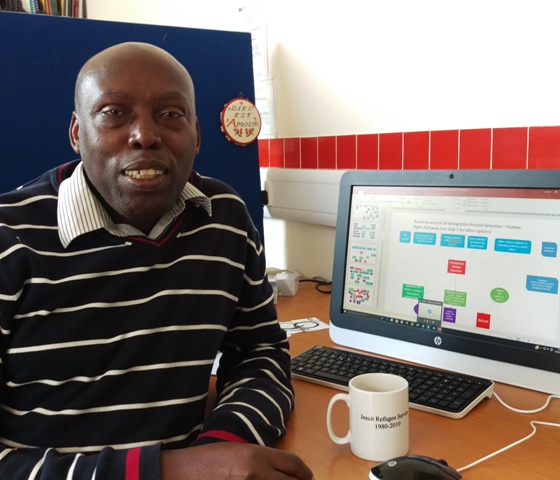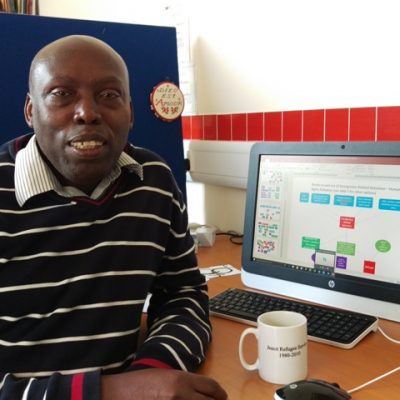On July 11th, 2016, I began a new chapter in my professional life at JRS UK. During the three-week period, I have read many publications and briefing notes; had one to one meetings with colleagues (staff and volunteers); attended an introductory session on the Ignatian tradition; attended a strategic review day; represented JRS UK at external meetings; engaged in a dialogue (including a Skype conference call) with policy and advocacy portfolio holders at JRS Europe and JRS International. Without doubt the most important thing I did during the period, was meeting and listening to refugee friends at the summer party and during the three open days.
Today, I have a better understanding of JRS’s approach underpinned by three complimentary values: accompany, serve and advocate. Additionally, I have an enhanced understanding of the critical importance of attentive non-judgmental listening, which is at the core of accompanying. Joining JRS UK has opened my eyes to the two critical issues in the lives of our refugee friends: destitution and detention.
The three-weeks period, opened my eyes on the impact of UK policies and practices in the area of asylum on the individual refugees. It has re-affirmed my view that behind the numbers and labels that we come across on public platforms, there are individuals’ stories and experiences of resilience in difficult circumstances. Refugees have faced many challenges historically and for the Christians the story of exodus, and indeed Jesus Christ’s experience attest to this. The refugee story, is our story. We need to reflect on the refugee experience carefully and do something to restore refugees’ dignity and by extension our own dignity.
Advocacy work at JRS aims at making the case for ‘just and generous policies and programmes for the benefit of victims of forced displacement so that they can receive protection and durable solution to their flight’. The essence of JRS’ approach to advocacy was captured by the words of Hannah Arendt who stated that “JRS calls for refugees to be protected by the rule of law i.e. not to be treated as an anonymous number but to be recognised a bearer of ‘the right to have rights’”. Over the coming months, I will be working with colleagues and refugee friends, in developing interventions and projects to address the challenges faced by refugees.
I am delighted to get the opportunity to serve along people who are passionate and committed to the cause. We are all seeking to make this world a better place for all, including refugees. I am pleased to note that the relational approach underpins all the JRS activities. I welcome the fact that the work of JRS embraces values such as empathy, commitment, presence, resilience, equality, mutuality, justice, participation, perseverance, cultural sensitivity, hospitality, dignity, presence, loyalty, availability, being with rather than doing with, among others. These values resonate with my personal experiences.



